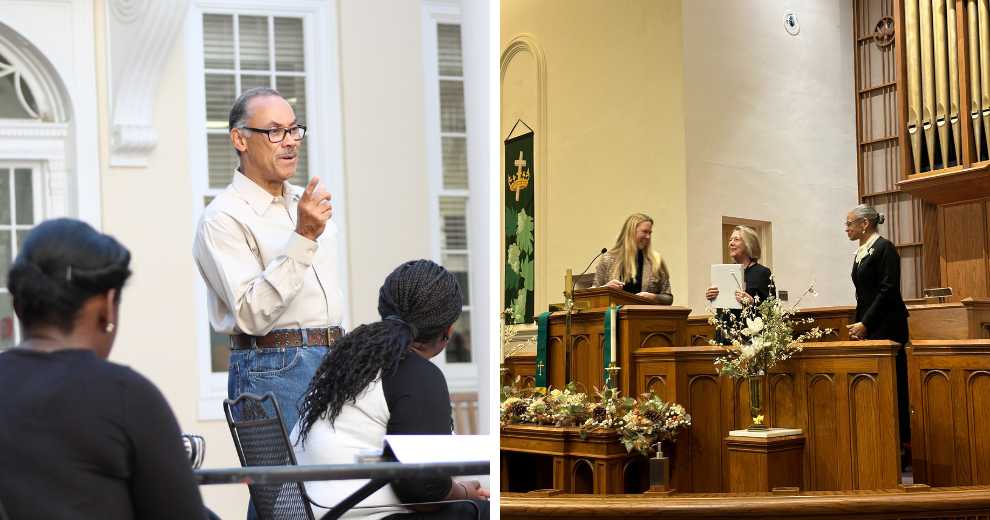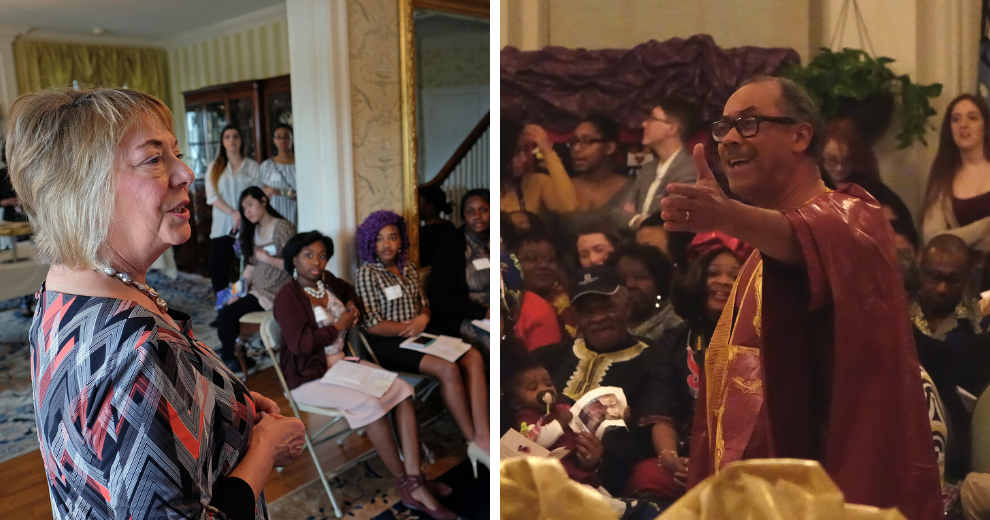The Martin Luther King Jr. Citizenship Award was presented to co-winners for the first time in history at Mary Baldwin University’s 30th annual King Day Celebration on Jan. 16.
A distinguished panel of philosophy and religious studies professors chose to honor President Pamela R. Fox and Associate Professor of Philosophy Edward Scott for their work to foster King’s concept of the “Beloved Community” at the university and in the greater Staunton area.

MBU Chief Diversity Officer Andrea Cornett-Scott says the exception arose from exceptional circumstances: Both Fox and Scott will retire after the 2022–23 academic year.
Cornett-Scott sees the award as a way to honor what she calls an incredible 50+ years of combined service to the university.
“One of the first things Dr. Fox did after arriving on campus [in 2003] was to gather the community to author our statement of inclusivity,” said Cornett-Scott, who founded the precursor to MBU’s Office of Inclusive Excellence (OIE) in 1996.
Fox has since been a staunch supporter and advocate for diversity, equity, and inclusion efforts.
Cornett-Scott says she worked tirelessly to “support the efforts of the OIE and diversify our faculty, staff, and student body. She formed the ongoing Coalition for Racial and Social Justice to map a path forward amid the aftermath of the police murder of George Floyd, appointed an inaugural chief diversity officer” — and much more.
“This award is among the most meaningful and special to me, as my commitment to our united, diverse, and inclusive community is one of the values I strive to live daily,” said Fox. “I am humbled and deeply honored … [as] I am but one among many who share the commitment to social justice exemplified by Dr. Martin Luther King Jr. Advancing this work at Mary Baldwin has been one of the greatest joys and privileges of my career.”

Befittingly, both the ceremony and award were among Scott’s countless contributions to Mary Baldwin and the regional community.
“When Edward came to MBU in 1990, there was nothing in the town or campus that celebrated Dr. King,” said Cornett-Scott. “He encouraged his colleagues in the [philosophy and religious studies departments] to do something, and together they started the annual celebration.”
Scott was Mary Baldwin’s first African American faculty member. He was instrumental in advocating for the adoption of better diversity practices on campus, forming the Black Student Alliance, creating the African American Studies minor, and founding what has since evolved into the OIE.
“His and President Fox’s efforts have helped radically transform the university’s student population,” said Cornett-Scott. In the late 1990s people of color made up less than 10 percent of that population. Today, they comprise about half.
Though grateful for the recognition, Fox and Scott agree that their — and the university’s — work around manifesting King’s Beloved Community is far from over.
“There is still much to do on our campus, in our society, and in our world, as King’s words continue to resonate with pressing and uncomfortable persistence,” said Fox. “In essence, the credo of diversity and inclusivity at Mary Baldwin pledges to build on our campus, and in this community, a more just and committed network of mutuality so that our students and citizens can take this reflective action into the wider world they wish to build from here.”
“I am but one among many who share the commitment to social justice exemplified by Dr. Martin Luther King Jr. — advancing this work at Mary Baldwin has been one of the greatest joys and privileges of my career.”
MBU President Pamela R. Fox